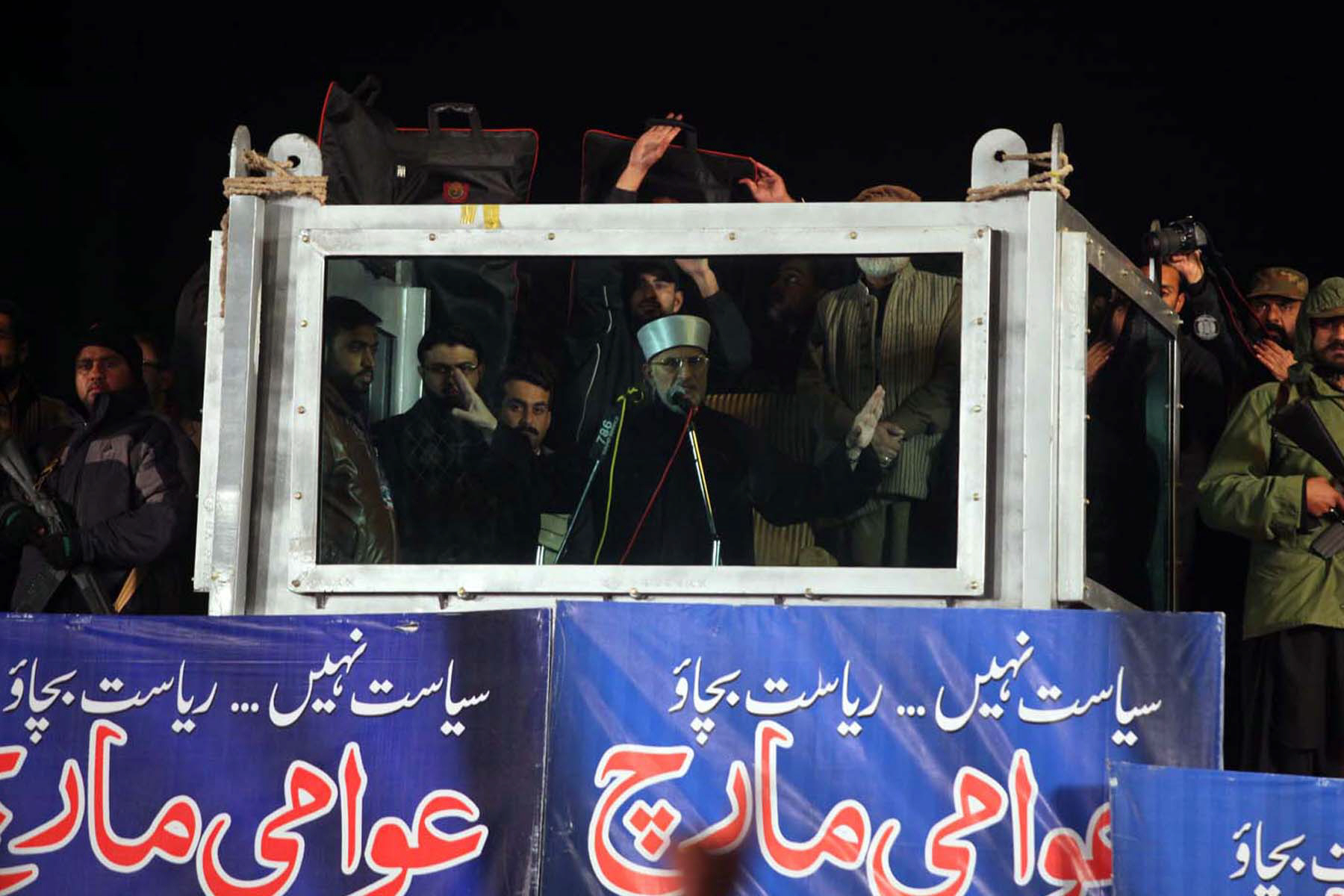
What truly ruffled the leaves and sent a storm sweeping around Islamabad and the rest of the country came right in the midst of Dr Qadri’s address, as the Supreme Court (SC) unexpectedly announced orders for the arrest of the prime minister (PM) within 24 hours, in the Rental Power Project case. This decision suddenly raised the temperature close to boiling point, with uncertainty mounting and the Karachi Stock Exchange closing 500 points lower. Conjecture continues, so do meetings of the top parties. Many things are up in the air with questions being asked about the timing of the SC verdict, as well as its significance. While legal experts hold that Raja Pervaiz Ashraf technically remains PM, as he has not been convicted, the prospect of a sitting PM’s arrest, possibly from his office, dominates minds.

Dr Qadri’s enthusiastic, indeed euphoric, response to the Court verdict also brings comment. It is impossible to say if the two events are linked; some continue to argue they are not — though Dr Qadri’s reaction certainly did not suggest this. Nor did his ominous warning that the ‘rest’ would happen soon; none of this is comforting. Are strings being pulled from somewhere? Will other events follow? Regardless of where the truth lies, the convergence of all these matters has undoubtedly created a crisis. Just the degree of questioning over what will happen next further adds to uncertainty. Such a situation is not healthy for our nation or our democracy. Our history of interventions from forces, which should not play a part in governance, adds to the ongoing debates and arguments. We can only hope things will settle down and that normalcy will return. But the fears being expressed are disturbing — even though they build on the people’s desperate need for change.
This brings us back to Dr Qadri. The demands put forward by him are, to put it mildly, bizarre: A long-term interim government, just ahead of a scheduled poll when people can make their own decisions about the present set-up, makes no sense. Nor does the call for reform; in a democracy this should by right come through parliament. In this context, the comparisons made by Dr Qadri to the uprisings against dictatorships in the Middle East make little sense. Where we stand can change through the ballot, which lies just around the corner.
A key question, still is, why Dr Qadri chose to make his move. While all major parties backed away, the MQM remains somewhat ambiguous, with Altaf Hussain again backing his demands on January 14. The suspicions remain that a ‘pro-Establishment’ force backed Dr Qadri. The events of January 15 support this theory. Many suspect this. And while no revolution has come, the long march has focused attention on the disgruntlement of people with years of misgovernance. Corruption has been a focus and the fact that many, not linked to Dr Qadri’s party, joined the protesters in Islamabad puts forward a message of its own, thereby signifying the desire for change. It is a message the government would do well not to ignore, with the call for change evident, even if the demands themselves are contentious and have been backed by all major political parties, who have opted for polls over a caretaker set-up. Much will now depend on the decisions made by these parties.
Published in The Express Tribune, January 16th, 2013.
COMMENTS (9)
Comments are moderated and generally will be posted if they are on-topic and not abusive.
For more information, please see our Comments FAQ





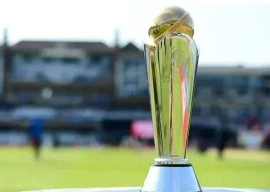
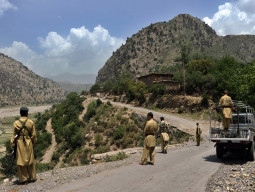
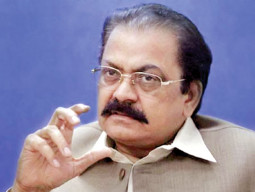

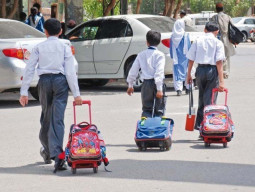
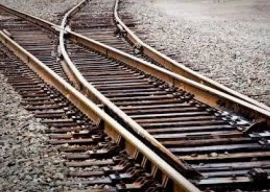
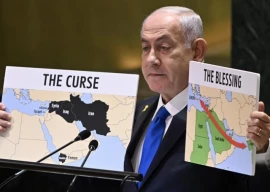
1736508423-0/Express-Tribune---News-Desk-(9)1736508423-0-270x192.webp)

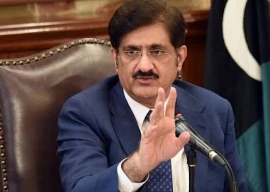
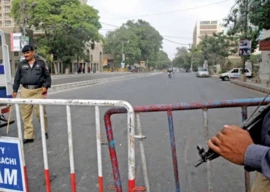







Anna here and Quadri there . Loads of noise and zero substance.
@citizen: Yes, every one cannot be a leader, This Qadri is more noise (cacophony) than substance. He is only giving the situation a spin and nothing more. He is a status quo politician. Rgds P
@nishant ! first of all i am not qadri supporter or any other party supporter. 1)it takes great pain to collect even a hundred people for a procession and make them stay in cold winter nites of islamabad. i went there my self and saw people from all walks of society . Number doesn't matter . it is the spirit matters . u cannot judge pain and misery of common man sitting in a warm house using a laptop . 2)Everyone cannot be a leader/ speaker . I mean can you do what qadri did ? it is easier to criticize . Let is put ourself in his shoes.i guess a little protection is not harming anyone . 3)March is peaceful . They threw stones on police after they were attacked via tear gas and bullets were fired on Qadri's car . its TIT for TAT people . i guess you wont stay silent if some ones attack you . would you ? 4)Everyone knows this government majorly established as a result of sympathy votes . It is not peoples mandate . 5)He did not say military to participate . He just applauded their efforts . People actually miss Musharaf now ! also a hint > quetta incident .
and yes it is NOT a revolution . we are weak as a nation . i am weak , i wont go out and be a PART of change . Probably because i am coward like millions of my fellow beings .how can we expect revolution ? and lastly It is not qadri's persona that matters , it is his words . I guess they were right on spot !
@Nishant Sharma: Thanks for the kind words. Surrender to India must have been a taunt against the invincible soldiers of Islam. They were busy in their atrocities against the Bengali civilians but when it came to fighting they surrendered without any resistance.
For me, Mr Qadri appears all Black and Grey. Where was this chap when there were floods and devastation over the many years. He is come here to milk the situation. Let him but is he truly qualified ala imran khan. I doubt it. Also curious to know where, he is getting all his funds from, for his political activity. Also I was wondering is it really necessary to sing paeans about the army. Is it not possible to make it without praising the army. Rgds P
@Ricky: An excellent comment on the editorial.Just one thing,what do you mean by-'surrendered to India'.
Here are some hard facts about this 'march'-
1.The figure 30,000; doesn't constitute a million. 2.True leaders don't address their innocent followers sitting inside an armoured vehicle,for how can you promise freedom from corrupt-iniquitous chains while being 'contained bulletproof' in a cage. 3.Throwing stones at the security forces and threatening to barge into the democratic establishments to dissolve them if demands are not met;are neither peaceful nor non-violent. 4.Calling the mandate of the present democratically people's elected government as 'fake', Qadri has deemed the march as undemocratic and hence completely unconstitutional. 5.Calling for a military participation in a democracy and to sow governance chaos; is strictly unlawful. 6.This is just a 'march & gathering' and definitely not a revolution. Firstly,because the motive behind is to overthrow & replace the elected government with a military backed puppet administration using threatening of a few thousand supporters who are completely misguided & misled. Secondly, there is no mass participation of common public. Finally,there is no guarantee of a quick and fundamental transformation of present state of affairs in Pakistan even if the demands are met.
An insightful and thought provoking editorial by ET. It is not a coincidence that Qadri descends from the air to Islamabad, SC suddenly announces its decision, Shia Hazara are slaughtered by hundreds, Indian soldiers are beheaded and talk of armed conflict heating up, the agitation for unconstitutional changes, MQM and remnants of Mush playing their old games and postponement of elections all come at the same time. In every civilized country it is the right of the electorate to punish the incumbent govt for non performance but Pakistani voters are deprived of this constitutional right as usual. Those who delegitimize the elected govt on one pretext or the other ignore the fact that we have tried other forms for more than three decades but lost half the country, surrendered to India, hosted OBL and safe havens for the terrorists. Gen Mush and his allies manufactured the electoral lists not to support PPP or ANP but to support themselves. In fact those voter lists were wrong to get favorable results during the rule of Mush and his allied parties. The NRO only allowed all parties to contest the elections not win the elections. The current govt came as a result of elections despite some bogus voter lists. Now the voter lists are corrected much to the chagrin of Mush’s old allies and bogus votes have been eliminated. The undemocratic forces know that next elections would not bring the defeated rightwing or mullahs into power hence the old game. All democratic forces must unite on one point agenda against hijacking of democracy.